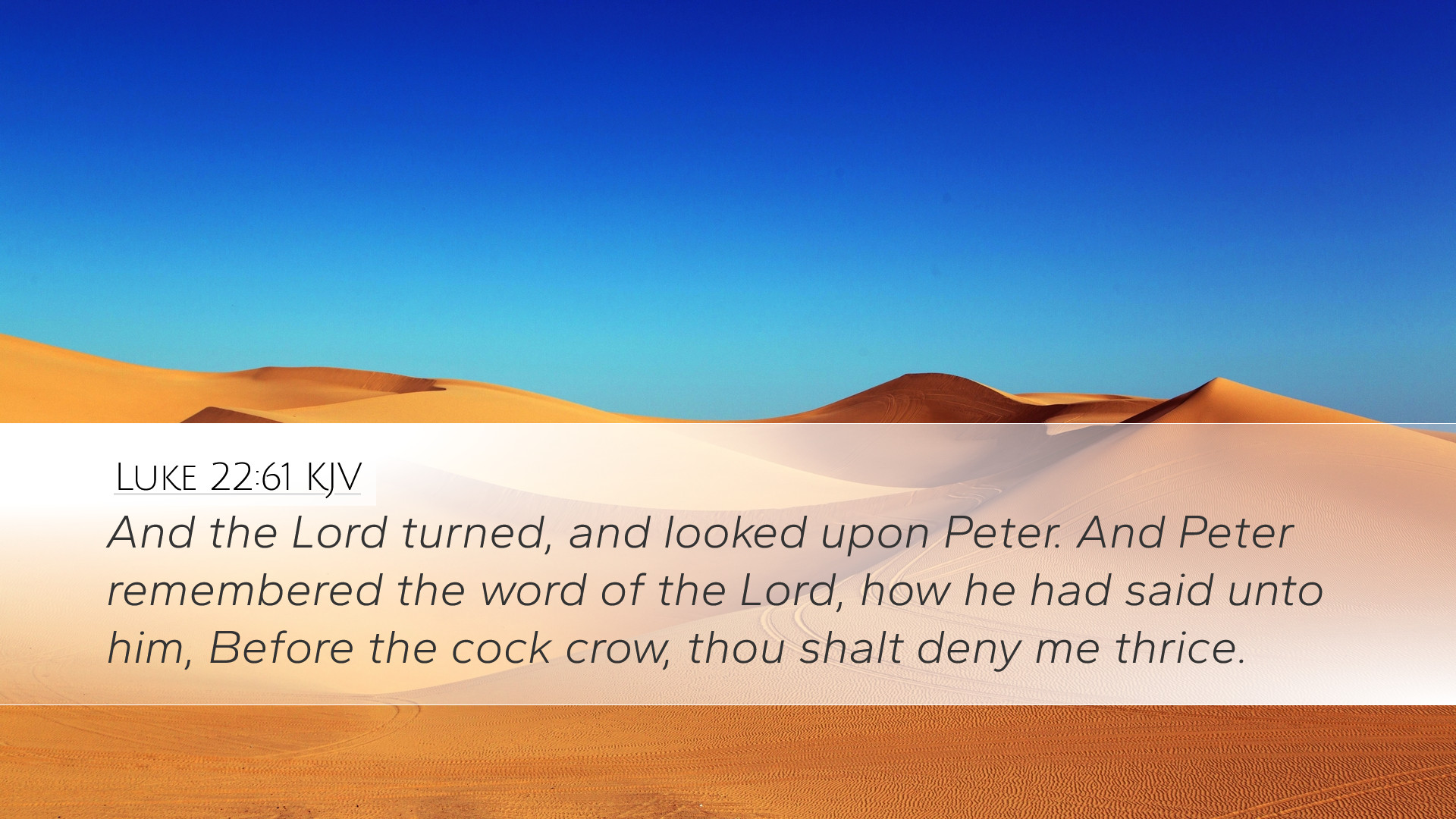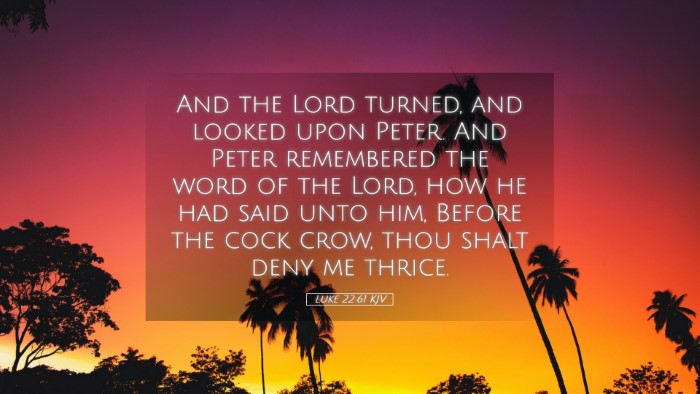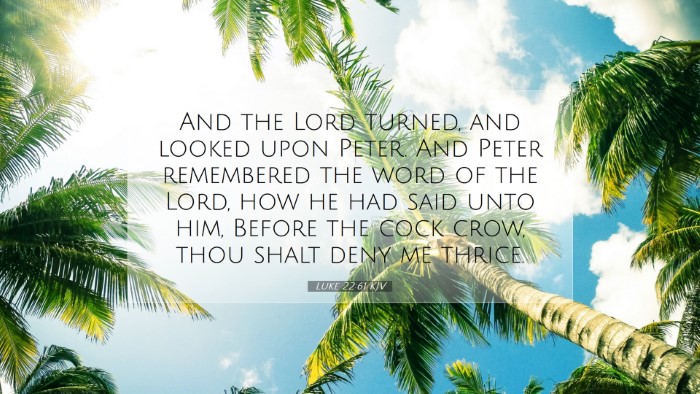Commentary on Luke 22:61
Text of the Verse: "And the Lord turned, and looked upon Peter. And Peter remembered the word of the Lord, how he had said unto him, Before the cock crow, thou shalt deny me thrice."
Overview
This pivotal moment in Luke 22:61 captures the profound emotional and spiritual dynamics at play as Peter grapples with his denial of Jesus. The look of Christ is emblematic of both conviction and compassion, serving to awaken Peter's conscience to the reality of his actions. This verse offers deep insights into themes of failure, remorse, and restoration, challenging believers to reflect on their own fidelity to Christ.
Insights from Commentaries
Matthew Henry's Commentary
Matthew Henry emphasizes the significance of Christ's gaze as an instrument of conviction for Peter. According to Henry, this look was filled with both love and sorrow. It served to remind Peter of his earlier commitment, leading to a moment of self-reflection and contrition. This instant became a catalyst for Peter’s eventual restoration, underlying the biblical principle that while we may stumble, there is hope for repentance and redemption.
Albert Barnes' Notes on the Bible
Albert Barnes notes the timing and the intensity of this encounter. He highlights that it is in the moment of Peter’s failure—when he is most vulnerable—that Christ’s gaze pierces through the chaos of his denial. Barnes suggests that the “look” symbolizes the intimate knowledge Christ has of our hearts, indicating that even when we feel we are distant from Him through sin, He remains intimately aware and concerned. This combines to reinforce a theological understanding of Christ’s omniscience and His call toward genuine repentance.
Adam Clarke's Commentary
Adam Clarke expands upon the emotional weight of this verse by detailing the context in which this denial occurs. He references the place and situation that surrounded Peter, illustrating the immense pressure and fear Peter faced. Clarke comments that this was a necessary moment for Peter, as the weight of his denial brought him to true repentance. Clarke also notes the significance of remembering the words of Christ, as it exemplifies the power of prophecy and the importance of Jesus’ teachings in our lives, especially in moments of crisis.
Theological Themes
- Human Fallibility: This passage serves as a reminder of human weakness and the ease with which one can stray from the path of righteousness.
- Divine Foreknowledge: The prophecy of Peter’s denial speaks to Christ’s foreknowledge and His ability to prepare His followers for potential pitfalls.
- Redemptive Love: Despite Peter’s failure, the look from Christ signifies the possibility of forgiveness and the call to a higher restoration.
- Memory and Remorse: The act of remembering is crucial in the biblical narrative, representing a return to truth and acknowledging one’s own shortcomings.
Pastoral Application
Pastors can use this text to address themes of failure within their congregations. It provides a framework for discussing the grace of God in the midst of our shortcomings. Encouraging believers to consider how Christ sees them during their weakest moments underscores God’s desire for restoration rather than condemnation.
Conclusion
Luke 22:61 is more than a historical account; it is a profound commentary on human experience in relation to divine grace. The interaction between Jesus and Peter transcends time, offering insights into the process of acknowledgment, repentance, and restoration that is essential to the Christian faith. As we reflect on this verse, may we also be moved toward deep introspection, recognizing our own vulnerabilities but ultimately resting in the assurance of Christ’s unyielding love and forgiveness.


